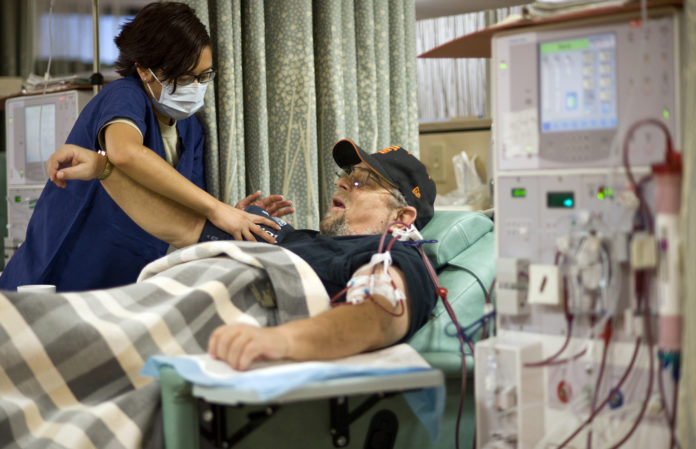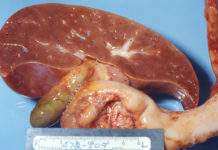
Treatment of depression in dialysis patients with either the drug sertraline or counselling improves quality of life
Hemodialysis has extended lives of people with chronic kidney disease for the last five decades. But when a patient first learns that their kidneys have failed and dialysis is necessary to survive, it can be a jolting overture of mortality.
The number of people with end-stage renal disease is increasing rapidly. Hemodialysis is done to cleanse the blood of chronic kidney disease patients of impurities normally filtered out of the body by their kidneys.
These patients usually have lived for years with diabetes or hypertension with burdensome medication regimens and lifestyle constraints. Adding dialysis, a four-hour, thrice-weekly therapy, can easily push patients into depression if they don’t already have that diagnosis.
According to many previous reports, nearly one in three End Stage Renal Disease (ESRD) patients meets clinical criteria for depression and most of them receive no care for the condition.
It is estimated that every year about 2.2 Lakh new patients of End Stage Renal Disease get added in India resulting in additional demand for 3.4 Crore dialysis every year. The Pradhan Mantri National Dialysis Programme (PMNDP) was rolled out in 2016 to provide dialysis for this increasing number of patients
A new study reports that cognitive behavioral therapy (counseling) and the drug sertraline, effectively reduce depression among people undergoing maintenance hemodialysis. The study was published in the Annals of Internal Medicine.
This multicenter trial included 184 kidney-failure patients at 41 dialysis facilities across U.S. All patients had been screened and identified to have depression.
The trial was conducted in two phases: first, to determine the effect of an “engagement interview” on patients’ acceptance of an offer of treatment, and second, to compare the efficacy of the two therapies.
Half of the patients were randomly assigned to receive an engagement interview in which the patient’s depressive signs were more fully explored and discussed; the other half received a simplified statement of their depression diagnosis and an offer of treatment.
About 66 percent of the engagement group and 64 percent of the control group opted for treatment.
“Sertraline was slightly more effective but both treatments seemed to work for this population,” said the study’s lead author, Rajnish Mehrotra, professor of medicine (nephrology) at the University of Washington School of Medicine. “Physicians should select the treatment that is available and acceptable to the patient, recognizing that each comes with its own burdens: Cognitive behavioral therapy needs to be given once a week for 10 sessions, and sertraline is a daily pill that has a higher risk for adverse events such as nausea and dizziness.”
Contrary to earlier belief, “I was surprised by how many people accepted treatment,” added Mehrotra.
Those patients amenable to treatment were randomly assigned to 10 cognitive behavioral therapy sessions over 12 weeks (delivered during dialysis sessions) or prescribed daily sertraline for 12 weeks.
It is estimated that every year about 2.2 Lakh new patients of End Stage Renal Disease get added in India resulting in additional demand for 3.4 Crore dialysis every year. The Pradhan Mantri National Dialysis Programme (PMNDP) was rolled out in 2016 to provide dialysis for this increasing number of patients. It provides free dialysis care to the patients in district hospitals. As per reports from the government, more than 2.3 lakh patients have availed this scheme till March 2018, with 22 lakh dialysis sessions. Most of the patients who availed the scheme were from West Bengal (more than 42,000 patients), followed by Gujarat (more than 35,000 patients). Puducherry, despite being a small state, reported more than 10,500 beneficiaries.













